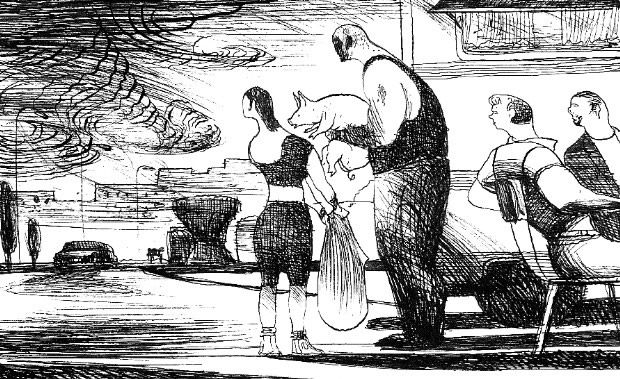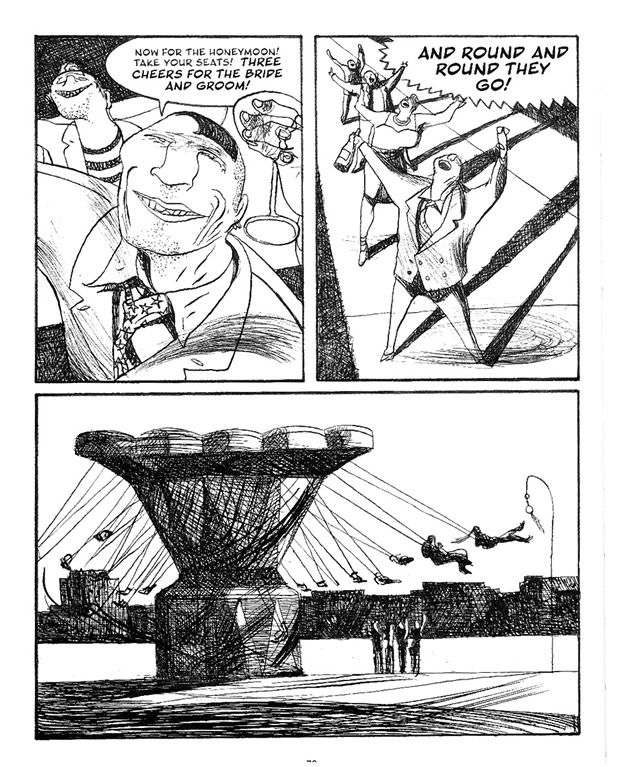I know that it's still December 2010 - and not even the end of December, the point where we all make our lists of the best of the year - but it's possible that I've already read my favorite book of 2011. Its name? Stigmata.
I lucked into Stigmata, I admit; I'm not sure I'd even heard of it before a copy arrived in the mail from Fantagraphics' PR guru Jacqueline Cohen, with a note promising me that I'd be hooked within the first ten pages. Weirdly enough, she was entirely right - it was even the tenth page that was the one that won me over entirely (Yes, I went back and counted, and no, I think it was just coincidence instead of PR people being able to crawl around in my head, Being John Malkovich-style. Or, at least, I hope it was). I can even tell you which panel it is that sold me - the first panel on page 10 - which may, perhaps, speak to how important art is to the book.
I should probably explain what Stigmata is, first; it's a black and white graphic novel to be released towards the end of next month, written by Italian novelist and screenwriter Claudio Piersanti and illustrated by the amazing Lorenzo Mattotti, about a man who suddenly develops stigmata on his hands without explanation, and what that means to him, to the people around him. It's a smart, beautifully written book that refuses to offer easy answers - Anyone looking for why he gets the stigmata and what it means may be left unfulfilled by book's end, although there are certainly hints to be drawn out - or clean breaks, and is all the better for it (Kim Thompson's translation works really well, the language he brings out feeling natural for the story and characters therein). But, as good as Piersanti's story is, what made the book a classic for me is definitely Mattotti's artwork.
It's be fair to say, perhaps, that the art in Stigmata follows the writing - it's messy and personal and organic and, at times, achingly beautiful - but it does more than that: Mattotti's line is amazing, so filled with personality and intensity, at once angry and fiercely controlled, and used in the service of some amazing draughtsmanship and visionary visuals. Characters' physicality come from their personalities in ways that seem true as opposed to forced - or, worse, unrealistic - and there's a section towards the end of the book where the visuals take a more abstract turn that is, to be blunt, one of those things that you read and think, yeah, that's someone actually addressing the potential of comics for once. I'd not really seen anything by Mattotti before (I'll be looking out for him now, however), and my immediate reference point was some of Dave McKean's work in Cages and Pictures That Tick, but with a more natural, less studied, touch. It's breathtakingly good, no exaggeration.
Stigmata is the kind of thing that you read, and then immediately go back and start again, and experience it differently - more deeply, recognizing more details and making more connections as you go. It might not be for everyone, sure, but there's something about it, the sheer quality of the work, that makes me wish that everyone would, at least, pick it up and take a look before they make that choice. Like I said, I might be too early in saying this, but check back a year from now, and don't be too surprised if Stigmata is still my favorite book of the year.


